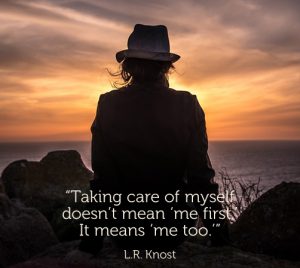When someone we care for needs our help, we often put their needs ahead of our own. This especially happens when we feel like we are the only ones who can help, and the person we are caring for is relying on us. However, it can be difficult to recognize when the responsibilities of providing care and support, becomes too much.
The term “burnout” is commonly used around caregiving. Burnout is a total physical, emotional, or mental exhaustion that comes from having an excess of stress. Individuals who are caring for a loved one may experience burnout, but a more common form of caregiver stress is referred to as “compassion fatigue”.
Typically, compassion fatigue effects those who have become overwhelmed by the empathetic feelings associated with providing care to a loved one, on top of managing the responsibilities and tasks at hand. Compassion fatigue can easily disguise itself as stress, and if not addressed, it can lead to total exhaustion and burnout. It is important to recognize the signs of compassion fatigue, and how to prevent it. The first step is to educate yourself and those around you.
Some of the most common signs of compassion fatigue include:
- Physical, mental, emotional, and/or spiritual exhaustion
- Continuous guilt
- Isolation from normal social activities
- Lack of self-care
- Denial

Whether you are a caregiver or not, it is always important to carve out time in your schedule to take care of you! Family caregivers who practice self-care regularly are less likely to experience complete burnout and compassion fatigue. It is important to stay active with your favorite hobbies, get together with friends and/or family, and do activities you find relaxing.
Although compassion fatigue is common among caregivers, others are not immune. Those who work in helping professions, such as nurses, therapists, social workers, doctors, and others can easily develop compassion fatigue, as well.
If you or someone you know, is starting to show signs of compassion fatigue, it is important to take a look at how you can start incorporating self-care activities into your everyday life. Remember that setting aside even one hour for yourself each week can make a difference.
The following link can help you identify if you are experiencing compassion fatigue, and some of the emotions around it. This website will also help with ideas for practicing self-care, as well as the road back to wellness if you are experiencing compassion fatigue.
Compassion Fatigue Awareness Project’s Self-Test: http://www.compassionfatigue.org/pages/selftest.html


